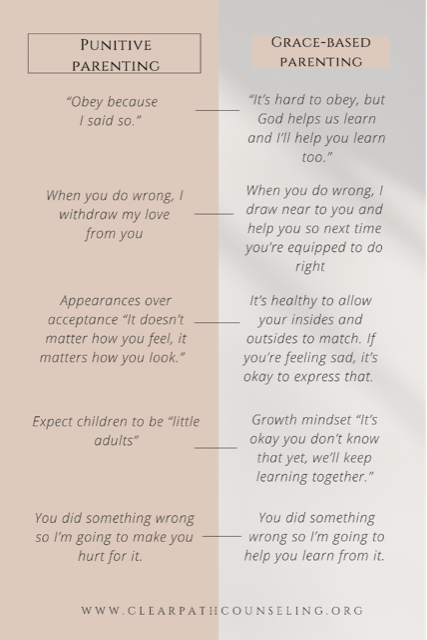As parents, most of us come to a point in our parenting journey where we decide to explore our parenting style in a deeper way. This mindset shift may be precipitated by a number of different activating events. Perhaps we are new parents and we’ve vowed to raise our children different than how we were raised. We could be parenting a child with a much different temperament than us, requiring us to form a shift in how we approach our relationship with them. If we’re prone to self-reflection, we may just be considering how our parenting style effects our children and wondering if there’s a different way to approach parenting.
Parenting psychology experts identify three main parenting styles: authoritarian, authoritative and permissive. Authoritarian parenting places high expectations on children while offering little emotional responsiveness. It’s characterized by a focus on control and obedience with less concern about seeing your child’s perspective and nurturing them accordingly. Authoritarian parenting styles oftentimes result in children with low self-esteem. These children may engage in rebellious behaviors as they grow in an effort to individuate from a parenting structure that is rigid and controlling.
Permissive parenting, on the other hand, tends to swing the pendulum in the opposite direction. Permissive parents oftentimes base their sense of worth as a parent on whether their children like them or not. As a result, permissive parents may allow their children to have much more control than they are developmentally ready to handle. These are the parents who seek to be their child’s best friend and have a hard time setting limits. Permissive parenting results in children with less impulse control and poor motivation.
The type of parenting that is most often associated with positive long term results is authoritative parenting. In this parenting style, parents are supportive, nurturing and encouraging, but they also set firm limits for their children. Authoritative parenting allows for flexibility and teaches kids responsibility by offering them choices, then following through by allowing whatever natural consequences may arise when they choose poorly. Authoritative parenting is not punitive, meaning it doesn’t focus on punishment. Adults raised in this parenting style tend to have secure attachments, positive self-esteem and the ability to delay gratification.
In addition to parenting styles, one might consider how they handle disciplining their children. There are two main schools of thought on discipline: punitive and grace-based. Punitive parenting focuses on punishment, whereas grace-based parenting focuses on teaching, growing and learning. To see some examples of these two philosophies, check out the graphic at the bottom of the page. Even though punitive parenting allures parents with the goal of immediate compliance (at whatever cost), a grace-based style of parenting creates meaningful and lasting relationships that will nurture the connection children need to learn how to make wise decisions long-term.
When we practice grace-based parenting, we teach our children that grace is something we all need and it’s something God freely gives to us. This gives them a template for relationships because as they receive grace, they identify their need for it and are able to more freely offer it to others. It’s never too late to learn how to become a grace-based parent. If you’re struggling with learning a new parenting style, a trained therapist can help. Take our free assessment (www.clearpathcounseling.org) to get started today. We can connect you to a therapist who specializes in parenting support.


Recent Comments